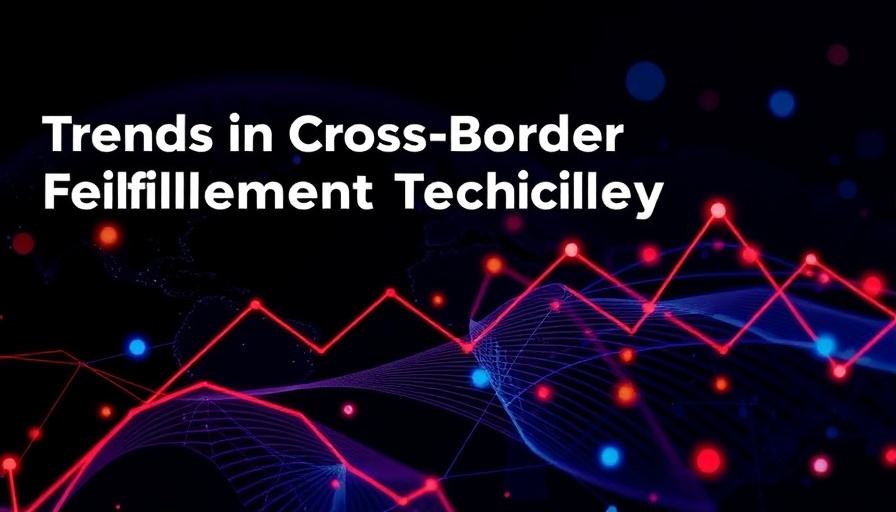
Understanding the Shift: AI’s Impact on E-Commerce SEO
The landscape of SEO is experiencing a dramatic shift as AI technologies become integral to online shopping. Gone are the days when search engine optimization relied solely on specific keywords, as the emergence of AI interfaces like Google’s AI Mode leads us into a new era where conversational interfaces dominate search mechanisms. As shoppers increasingly interact with AI agents, such as OpenAI’s Operator, it has become imperative for brands to adapt swiftly to remain visible in this evolving environment.
Why Traditional SEO Methods Are No Longer Enough
With AI shopping tools capturing and processing data beyond conventional search algorithms, businesses now face a significant transformation in how they need to think about their SEO strategies. The introduction of terms like Generative Engine Optimization (GEO) and Answer Engine Optimization (AEO) signifies that engaging content now requires not just visibility but also a deeper understanding of user intent. Richly contextual product pages, structured data, and interactive multimedia content have become the cornerstone for brands aiming for prominent placements within Google’s AI-driven search results.
Utilizing Generative and Answer Engine Optimization
GEO emphasizes creating content that is easily digestible by generative AI systems, focusing less on keywords and more on context and structure. Similarly, AEO seeks to ensure that content directly answers user queries in a clear, succinct manner. For e-commerce sites, this means product descriptions should not merely list features but speak to specific customer needs and queries, enabling AI systems to relay pertinent information when asked.
The Role of AI Agents in E-Commerce SEO
AI agents are revolutionizing how businesses approach e-commerce SEO. Unlike traditional AI chatbots that serve customer queries, advanced AI agents are adept at examining data analytics, automating processes, and optimizing SEO techniques inherently tied to user behavior. For e-commerce professionals looking to enhance their SEO strategies, leveraging AI agents can provide insights for real-time responses to market demands, competitive analysis, and precise keyword targeting, thereby increasing visibility on platforms often saturated with rival offerings.
Future Trends: Shopping with AI Agents
As market predictions suggest a growing reliance on AI in e-commerce—where 33% of enterprise software applications could include embedded AI agents by 2028—businesses must anticipate the operational shifts involved in this new shopping landscape. Retaining autonomous capabilities, these AI agents will increasingly handle entire shopping journeys from selection to purchase without the need for human intervention, effectively turning them into personal online shoppers for consumers.
Embracing E-Commerce SEO in an AI-Fueled World
To navigate the challenges presented by AI-driven shopping behavior, e-commerce businesses must prioritize technical aspects of SEO, embracing schema markup, optimizing for rich snippets, and facilitating quick-loading and mobile-responsive websites. The trend toward a streamlined, automated shopping experience necessitates that all digital marketing initiatives—including content marketing strategies, social media advertising, and PPC campaigns—remain in alignment with emerging AI functionalities.
The Road Ahead: Preparing for an AI-Driven Future
As we look to the future of e-commerce, brands that embrace these changes and act on insights generated by AI will position themselves favorably within their respective markets. Companies that adapt to AI-driven methodologies will not just survive but thrive in an increasingly competitive digital environment. The focus should be on creating relevant, engaging, and user-friendly experiences that resonate with both AI systems and customer expectations.
Conclusion: Action Steps for E-Commerce Professionals
In conclusion, understanding and implementing innovative SEO techniques in line with AI advancements is essential for modern businesses. As the demand for AI capabilities grows, leveraging AI to enhance e-commerce SEO will ultimately drive sales, engagement, and profitability. E-commerce professionals should investigate the potential of AI agents, revamp existing content strategies, and highlight user-centric approaches to effortlessly navigate this evolving digital landscape.
To capitalize on these insights further, professionals are encouraged to explore additional resources on AI in digital marketing, focusing on technical SEO best practices and emerging trends to stay ahead of the curve.
 Add Row
Add Row  Add
Add 




Write A Comment